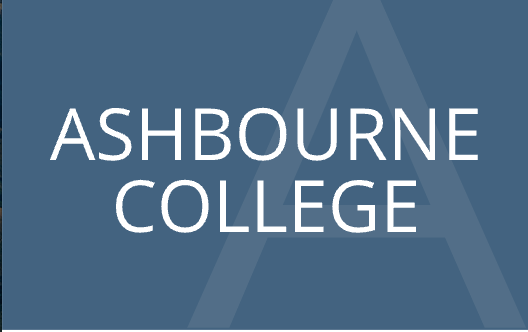What makes a good teacher?
Ok, so it’s probably the most asked about question when it comes to do with anything remotely related to the profession. It’s a question that the students, parents and guardians, higher authorities… even the teachers themselves, always wonder. Teaching styles and tactics alternate from one teacher to the next and the governing bodies (Ofsted for example) always have certain expectations of what they think makes a good teacher.
Let’s briefly look at what a teacher does to help us define what could possibly make a great teacher…
A teacher is there to pass knowledge on to his/ her students in an inspiring and easy-to-understand context. The teacher is also there to ‘teach’ right from wrong, and nurture children in a pastoral role. The pastoral role includes listening to and addressing ‘Every’ child’s needs within the classroom, and pushing them as far as you possibly can academically to get the most out of them.
Whether you believe in ‘tough love’ or if you’d rather take a ‘calmer’ approach, the way in which you teach should not compromise the fact that you are there to teach the children and push them academically as far as possible. Looking back at my past teachers, I remember a strict geography teacher and laid back science teacher. Both were excellent at delivering the lesson objectives and helping the pupils in achieving the lesson outcomes, with the main difference being teaching style. How were the teachers similar within their approach?
Both lessons, geography and science, were fun, informational, and aimed at getting the most out of us as academics. There were writing parts of the lesson, directly followed by practical parts, there were visual parts, there were audio parts… each learning style and need of each child was accounted for.
Should qualifications count in what makes a good teacher?
I found this article on TES and it made for good reading, inspired me to write about what makes a good teacher, and relates to all of the above mentioned.
What really makes a good teacher?
The majority of parents want ‘qualified teachers’ to teach their children, but, says Barnaby Lenon, there’s more to being a good teacher than classroom skills
By Barnaby Lenon
9:35AM GMT 15 Jan 2015
A NASUWT poll last week found that the majority of parents wanted ‘qualified teachers’ to teach their children. Unsurprising really, until you consider what that word ‘qualified’ really means.
In independent schools, recognised as being among the best in the world, we are free to choose our own teachers. In 2013, pupils in independent schools achieved 32 per cent of all A* grades at A-level.
Our success lies in the quality and expertise of our teachers, yet some may not have a teaching qualification. So what makes a good teacher?
They have four characteristics.
First, they love their subject and have excellent subject knowledge (the two go together). Last year Professor Rob Coe and the Sutton Trust published research into the qualities of the best teachers and this came top of the list.
It is the reason that some schools are happy to appoint an excellent graduate in a subject like physics even if they don’t have a teaching qualification. They are classified as ‘unqualified’, even though they possess the most important quality of all.
Good subject knowledge matters not only because at the top of the ability range you need to be able to stretch pupils but also because teachers with good knowledge tend to make lessons for younger children more interesting. They have more substance to be interesting about.
Secondly, they need to have the right personality. Teaching is partly acting, and acting ability helps greatly. Above all you need to be able to control a class, because without good discipline nothing worthwhile can be achieved.
So that means good teachers are those whom pupils will respect Рand slightly fear if necessary. They are completely in control of what’s going on around them.
Pupils know the teacher will notice if they are misbehaving or if their work is incomplete or copied from another child and will take action – punish the child, perhaps, or require the work to be redone.
But the best teachers are not disciplinarians. They are a velvet hand in an iron glove. Pupils come to know, over time, that they are warm and generous. But they are not to be messed with. Discipline has to come first.
There are other personality traits that matter too. Good teachers are very hard working, putting a huge effort into preparing lessons, marking work and giving extra time to children who need it.
They are able to manage stress. They are passionate about their school and their pupils, keen for all to do well. They are highly organised, because switching in a few seconds from one class to another, keeping track of individuals, remembering which extra duties they are down for, managing record-keeping and databases – all this requires good organisation.
Thirdly, they need to have certain classroom skills. This is why all ‘unqualified’ teachers need some training, both before they start and throughout their first year of teaching.
They need to be shown how to deliver a lesson with pace and interest, how to use digital resources effectively, how to mark work and record those marks, how to write reports, how best to teach tricky concepts, how to ask questions of pupils in the most effective way.
Finally, they need to have high expectations of their pupils. This is a characteristic of all the best teachers. They are determined that every pupil will master their subject. This attitude sets the scene for everything which follows.
Pupils who produce unsatisfactory work must be made to redo it until they achieve a good level. Pupils will be regularly tested to see whether they have understood and learnt the work; those who do badly will be retested.
Excellent teachers believe that it is pupil effort and teaching quality which determine how well a child does, not the ability of the child. The less able children will get there in the end.
So these are characteristics of the best teachers. In terms of weighting, perhaps 30 per cent is subject knowledge, 30 per cent is personality, 30 per cent is level of expectations, 10 per cent classroom skills. Of these, only the last need be the subject of teacher training.
Barnaby Lenon, former headmaster, Harrow and Chairman of the Independent Schools Council
http://www.telegraph.co.uk/education/educationopinion/11347131/You-dont-need-a-qualification-to-be-a-good-teacher.html









